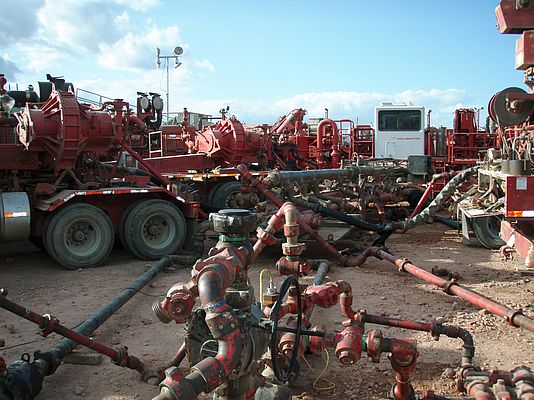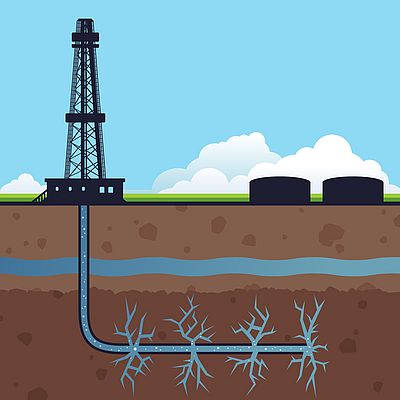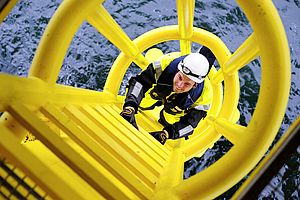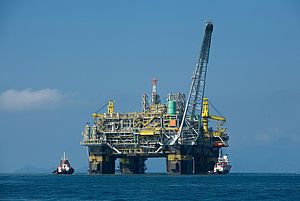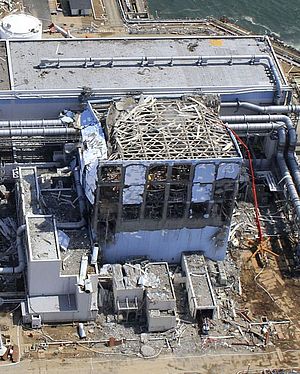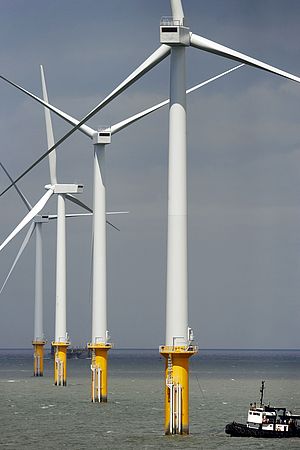Fracking is proving to be a boon not only for the US economy, but also for the valve industry. Some EU states however are stepping on the brakes. One thing is certain: states need to make sure shale gas is environmentally safe.
Fracking is giving the USA lots of hopes. Utilising this extraction method of unconventional gas deposits, the transatlantic superpower could become the world's largest gas producer. Nonetheless several European states remain sceptical and warn of the environmental risks of fracking. Is there thus much ado about nothing? Valve makers would resent it, as hydrofacturing rock formations requires numerous valves for the downstream process.
Loud drilling
Fracking causes a great ruckus. A mix of water, quartz sand or ceramic balls and various chemicals are pumped into rock layers. This brute force process creates fissures. “The chemicals in hydraulic fracturing fluid are used to reduce friction and protect the rock formation, thereby making the hydraulic fracturing process safer and more efficient“, explains Exxon Mobil.
Valves are of value not only here: the right amount of gas, chemicals and sand need to be pumped into the drill hole, before the gas can be extracted in a controlled manner at the top of the well. Demanding technology allows to extract gas from otherwise unreachable rock layers 1000 to 5000 meters beneath the ground.
New pipelines utilising new valves convey the shale gas. US company Quanta Services made record profits in 2012, thanks to pipeline construction and maintenance. General Electric supplies gas turbines and compressors for the pipelines. Fracking is proving to be a lucrative business.
Fracking creates jobs
In the end, the shale gas makes its way to power plants. Should fracking come to blossom in the EU the way it did in the USA, then additional, new power plants would have to be constructed – with a high amount of valves.
At the moment, the USA are experiencing an upwind through natural gas, as the prices for natural gas have been falling over the course of the last five years, after the fracking boom began. Natural gas is 60% cheaper in the USA than in Europe. In turn, the lower prices drive the domestic economy, energy-intensive sectors and households profit especially from the development.
Robust valves
Valves have to do their part to contribute to low emissions, high plant safety and pollution control in chemical plants – and all that in a demanding environment. Often enough, poisonous, corrosive and highly dangerous fluids are used to produce chemicals. Gate valves, valve blocks, pipeline components, gaskets, screws and flushing rings are required to withstand them. Materials “in all thinkable variations“ are needed, explains project manager Björn Bofinger of AS-Schneider. Demands also required for valves in fracking. The chemically enriched water pumped downwards requires robust valves.
Constructing LNG facilities
According to experts, the fracking boom will see the USA turn from a gas importer to a gas exporter. One problem however is the lack of necessary infrastructure. A greater number of pipelines for instance should lead to the coast. In addition, harbours also lack LNG facilities for storing and converting gas for transport to Europe and Asia. The USA are set to invest several billion dollars in expanding and retrofitting their infrastructure.
Valve makers are also set to profit from this development, as valves control the flow of gas at gate terminals, liquefaction and vaporisation installations and storage tanks furthermore LNG tankers also need to be fitted with valves.
EU cracks on fracking
Cracks are visible in the opinion of individual EU member states on fracking. EU energy commissioner Günther Oettinger sees fracking positively, because “security reasons and to lower gas prices“. EU climate commissioner Connie Hedegaard however has identified problems, as the situation in Europe can't be compared to the USA, in view of geology and environmental regulation. From a scientific point of view, shale gas seems to be non-hazardous, according to Anne Glover, chief scientific advisor of EU commission president Jose Manuel Barroso. Whereas Poland and Great Britain argue in favour of fracking, France and Bulgaria argue against it. Both countries are considering a ban.
Environmental impact disputes
This scepticism has various reasons. Next to earth movement, objectors fear damage to the environment and contamination of groundwater – and thus also of drinking water through the chemicals pumped into rock layers. Large amounts of water are flushed upwards at the well. Objectors refer to incidents in US federal states Pennsylvania and Wyoming. US environmental group Riverkeeper declares groundwater was contaminated through fracking.
Germany's Federal Institute for Geosciences and Natural Resources (BGR) however doesn't see any danger through fracking, “as long as the legal provisions are adhered to, the required technical measures are provided and location based pilot surveys are undertaken.“ “From the geoscientific view, an environmentally safe use of this technology is possible. Fracking and protection of drinking water supplies are possible“, states the BGR. In addition, the EU has stricter environmental regulations than the USA.
Advantages and disadvantages
One major problem is wastewater, which is flushed to the surface. This needs to be disposed of and recycled, in order to prevent incidents such as those in the USA, where wastewater flowed into the environment. Valves play an important role in the purification process. In order to purify wastewater, it needs to be disposed in wastewater shafts and later transported to treatment plants.
Against all odds, there is one major argument for fracking and all the gas plants that need to be constructed – namely that old coal power stations can be shut down. In the USA, the level of CO2 emissions sank by nearly ten per cent in a six-year period.
Fracking: yes or no? Governments have to consider the advantages and disadvantages and come to a decision. Some are looking at economic benefits – in times of crisis, low costs of energy are seen as a driver for economic growth. One thing is certain: states need to make sure shale gas is environmentally safe. Otherwise fracking will not be accepted by the populace, and will thus have no future.
Fracking offers opportunities
for the valve industry
- by Messe Düsseldorf GmbH
- October 25, 2013
- 715 views


